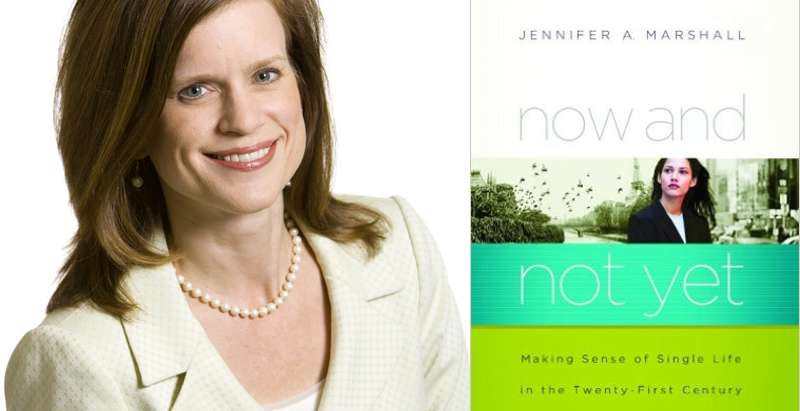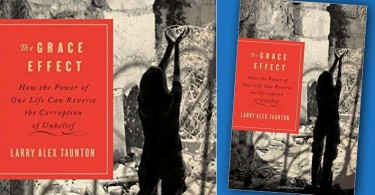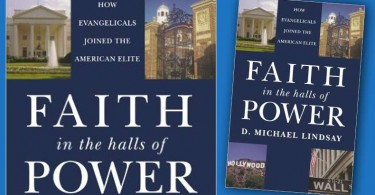I spoke with Jennifer Marshall about the challenges of being single in the twenty-first century. Jennifer is the director of domestic policy studies at the Heritage Foundation. Click here to listen to part one of our discussion and click here to listen to part two. You can also read the transcript of our discussion below.
Gayle Trotter: This is Gayle Trotter. Today I’m speaking with Jennifer Marshall, author of Now and Not Yet: Making Sense of Single Life in the Twenty-First Century. Thank you for talking with me, Jennifer.
Jennifer Marshall: It’s my pleasure Gayle. Thank you.
GT: Jennifer, with what thoughts does a single woman watch the royal wedding of Prince William and Kate?
JM: Hmm…that is a terrific question, and there were an awful lot of single women watching since a third of the world — it just amazed me — a third of the world stopped and watched that. I think that says something about the enduring ideal of marriage. And we’ve had so much heartache around marriage, around family in the last generation. Some of that is family breakdown. Some of that is marriages that have ruptured painfully, often. And so we have a lot of younger people, under the age of 30 maybe, who have experienced the breakup of their parents’ marriage. We certainly have Prince William in that very situation. And there was such a poignancy in the day and remembering Diana’s day and her fairytale that went in a very postmodern direction.
GT: Off the rails.
JM: Off the rails, absolutely. And the bitterness and the sadness of that were not enough to derail the joy and the universal interest in this occasion and this royal wedding. So I think it was a mix of emotions that the world had in this but certainly an overwhelming and abiding confidence and faith in the institution of marriage. So that was extremely poignant to me: That for all the heartache that we’ve experienced, for all the elusiveness of marriage that those of us who are experiencing singleness much longer than expected are having in our lives, still, we wanted to participate in the joy of this day and in the ceremony. So I think — I’ll just account for myself and my single girlfriends, some of whom I watched it with — it was just a real joy and rejoicing that this remains the longing of our hearts. I didn’t detect in it a disaffection or a distance. It’s not something where it’s a fairytale out of touch, but it’s a wonderful thing that we continue to embrace this.
GT: In your book, you ask several young 20-year-old and mid-20-year-old women, what would they think if ten years from when you asked that question, they were single and not married. What were their responses?
JM: Yes, so it was in the main, people could not imagine that and didn’t really expect that at all. And most of them had a sense of anxiety or fear or disillusionment about that which would be their first kind of visceral reaction. And then several would say, more reflectively, “I guess I would look for a model of somebody who was living what I thought to be a contented and confident whole life and look for examples to that end. I would look to fill myself with relationships and a diversity of experiences that would help me not focus on what I think I lack in my life but instead show me the many blessings that I have in my life.”
GT: What do you think are the unique challenges for single Christians in their thirties?
JM: Thankfully, the church has been a safe haven for marriage. It has encouraged marriage. Church leaders I think have been rightly concerned about the health and stability of marriage in the last generation so they’ve tried to create in church congregations a place for marriages to thrive and be upheld and so on. And to be esteemed, frankly, because we don’t see marriage esteemed enough in our culture. So in that rightful esteeming of marriage, sometimes there has been a neglect of singleness within that. And there’s a lag time; we’re trying to catch up with the facts of life now that people are having a harder time getting TO marriage. Not just staying in marriage and keeping a healthy marriage but even entering into marriage in the first place. And so gradually I think the church is catching up with the fact that, hey, we’re not on autopilot towards marriage like we might have been in generations past, where cultural indicators and pressures were all pointing young people towards marriage in previous generations. Not so, anymore. And so I do hear more church leaders thinking about how can we encourage our young people to get to know one another in a way that would produce godly marriages. Rather than just — and moving beyond, I would say — the casual relationships that dominate our culture today. There’s just a lot of casual hanging out and of course, on college campuses we hear about a lot of casual sex. There’s a lot of heartache in both of those situations.
GT: Should the churches be doing specific things to encourage people to get married earlier or just to get married in general?
JM: Great question. And I think this requires discernment based on the individual. Therefore the church is the perfect context because what we’re called to in a church congregation is to know one another well enough that we can give counsel that is based on universal biblical principle but also applicable and applied well to the individual case. So I would argue first of all, we’ve got to be talking — breaking down the elements of what a healthy relationship looks like. Healthy relationship, period, with anyone. And then secondarily, what a healthy romantic relationship, moving towards marriage, looks like, and what a healthy marriage looks like, as a desirable goal. That needs to be just more methodically reflected on in church teaching. And beyond that, in sort of the pastoral care and group mentoring and small groups that happen within a church, leaders taking particular care to get to know individual single people and help them along in their own journey of maturing relationally, making the right choices in terms of getting to know the other people. And perhaps one of the most important aspects is accountability and helping young people discern aspects of their relationships that may or may not be healthy and helping them reflect on those.
GT: Do you think singles in their thirties have a harder time holding onto their faith in light of their disappointment in their status?
JM: The evidence I would give to this is a survey that I did when I was preparing to write my book, and by the way, I really tried for this not to be just my own little experience but I tried to widen it and ask a lot of women what they were feeling. The very first thing I did was to do an online survey of about 650 women. Actually I set out to get 250 and within three weeks I had 650 which made me know this was a subject that people were craving discussion about.
GT: The responses poured in?
JM: Yes, exactly. And I don’t want any statistician listening to this to. I’m not claiming at all methodological purity in this; it was a self-selecting response. But of those — and they all professed Christian faith, by the way, who filled that out — among them, 15 percent said that their singleness had caused them to doubt their faith or doubt God. So yes, there is some serious questioning going on around this. And I think it’s one of those challenges in life, like the many challenges that cause us to say, “I’ve been taught that God is good. I’ve confessed that. I believe that and yet this doesn’t seem to be a good circumstance, and it’s not the desire of my heart. So how do I work that out?” And it’s one of those testing — and what the church would call sanctifying — experiences in life to deal with the dissonance between our expectations and the reality that God has for us. And that’s what I really try to wrestle with in the book: How do you live with that tension? And I think we’re designed to learn through circumstances like that so it’s an opportunity for us to learn and grow.
GT: You give great answers to this question in your book. One of the things that I really embraced in your book was the discussion about Os Guinness and his book, The Call: Finding and Fulfilling the Central Purpose of Your Life. You talk about callings that we each have as Christians and callings that we each have as single people. Can you explain a little more about that?
JM: Yes, absolutely. I think this word, “call,” “to be called,” “to have a calling in life” —I hear it a lot more in our popular conversation which I think is a wonderful thing because it reflects the fact that we sense a purpose and something more meaningful than the daily grind in our lives. We sense something that I have a purpose to do.
JM: Now, beyond that, the language gets us tripped up a little bit because we often tend to speak of “calling” in the singular and it’s like: “That perfect job out there is my calling and what I’m doing I love it so much, it’s my calling.” And I want to just take a step back and say, “Look, let’s really sort this out.” What Christian faith teaches is that we have a calling first and foremost to glorify and enjoy God. That is our highest calling; whatever superlative you want to put on that. That is the highest, the best, the most important, the lifelong purpose in our lives. And so that first calling, to glorify and enjoy God, is held out there constant throughout our lives. And then there are what we would call everyday or personal callings, plural, that are the ways we work out that first calling, the ways we pursue that first calling. The idea of glorifying and enjoying God sounds very spiritual, very abstract. How do you make that concrete, daily, et cetera? So these everyday callings do that for us. They are the tangible ways that we every day pursue that first calling. And so I think it’s helpful for us to think of those callings — those everyday callings — in four categories and sort of take an inventory of all of these through all the seasons of our lives. And those are our relationships, our responsibilities, our gifts, and our opportunities. And for the accounting types, that’s almost two sides of a ledger. Because responsibilities and relationships, they weigh on us; we have to hold those things. They’re things that make demands on us.
GT: Yes.
JM: And then our gifts and our opportunities are sort of the other side of the ledger, the openness, the free space in front of us where we can make choices. And especially now for women there are so many choices out there that the reconciliation of these two sides of the ledger I think is just critically important for us to sort out our callings on an every day, every season basis. And so, let me just use an example: I am a sister, I am a neighbor, I am a citizen of the United States. These are some of the relationships. I am an employee so I have responsibilities as an employee. I would say as a citizen of the United States I have certain obligations and responsibilities. So those are all a bundle of things that are a given, that are the relationships and the responsibilities that I have. And the gifts and the opportunities — okay, so I can write. What do I do with that? And I have opportunities. I don’t have to live where I’m living now. Because I’m single, I can make choices about that. There may be multiple things that people have invited me to do. Now how do I organize these relationships, responsibilities, gifts and opportunities in a way that I think will best help me pursue that ultimate calling to glorify and enjoy God? And I think for women, it’s so important to look at this deeper layer of our callings because it’s to help us navigate the radical season changes that for any young woman who desires to be a wife and a mother — and that’s most of us — there are going to be some radical season changes. Just even physically, to have a child is…you know this well!
GT: No kidding!
JM: Many women, career women who go on to have children, talk about this just radical identity challenge in their lives. Trying to figure out who am I, what is the meaning of my life, I’ve just radically shifted gears, how do I maintain a sense of…
GT: Sanity!
JM: There we go! Yes, a direction in all of this? So I think learning this discipline that relationships change when you become a wife and a mother; the responsibilities change, but that doesn’t mean that your gifts change. It’s a different and new application of maybe new and different gifts that you weren’t exploiting before. And there are new opportunities afforded through that. So that’s I think how we deal with those radical season changes and learn that we still have the same identity; we have a new way of taking inventory of everything that we’ve been given.
GT: What’s surprised you the most in writing this book?
JM: I think it is that for all the women where you look around and our culture has stereotypes that we cast on men and women alike. The stereotypes for the women often are that either you’re somebody who went to college to get her “Mrs.” degree and your whole life is oriented towards snagging a man. And then the other stereotype is a career woman who’s really interested in her own professional success and she’s not interested in men and she’s not interested in marriage or motherhood. Those are the cultural stereotypes. And I wanted to interview professionally successful women, and as I did so it was intriguing to me how many of them — you just scratch the surface and they are eager to be married, to have children and concerned that men don’t perceive that. They are perceived through a cultural fog of that stereotype that I just described. It wasn’t necessarily that that was surprising to me, but the willingness that these professionally successful women had to say, “You know, I hold this all very loosely, and I have an elastic view of the future, and I’m willing to think about if he’s a State Department guy and his job takes him to Vienna, I can leave. I’m okay with that, or okay if it’s a different place.” An elastic view of the future is how I describe this because they weren’t at all locked into it. Why, I interviewed one woman who at one time in her life wanted to be the next Katie Couric, and she had long ago, as she put it, said she gave up the idea that she was going to save the world or whatever. I think as we mature, there’s a sense that really the most important things to me are not necessarily hanging onto this easily visible professional success, but I want something deeper in life.
GT: It surprised me in reading your book, how many women you interviewed — they were law firm partners or successful on the Hill or whatever they were doing — they said they basically were willing to chuck it all to have this relationship that they wanted. And my question for you is how much of that is influenced by their Christian faith and how much do you think women generally have that willingness to forgo those things for a relationship?
JM: I want to say that I think it’s more universal than we suspect. And for awhile in decades past there was the either/or supermom kind of idea that either you were a stay-at-home mom or you were the one who spent 60 hours in the office. Now I think we have a more nuanced understanding of what that might look like and this is again why the inventory approach is helpful — when we take inventory of our callings. As you gain professional experience, you also gain insight into how you can break up what is a coherent professional career into pieces that fit into different places in your life. Even as how you’ve done, writing and interviewing and this blogging, as a part of your life as a mother, you begin to see how you can utilize your professional skills in a different way. That’s what these women who are at 10- to 15-year marks in their careers might see in a way that the 24-year-old didn’t.
GT: Right, right.
JM: That they begin to understand and be better managers — and the best moms are really tremendous managers, right?
GT: No kidding, no kidding!
JM: It’s an understanding that we can take ownership of our lives and not be the victim of the so-called system out there and make work work for us, rather than forcing our family or our personal dreams and our family life into the work system.
GT: What is the meaning of the title of your book to you?
JM: Now and not yet is the idea of the kingdom of God, a longing that we have in the future not yet fulfilled and yet purpose and meaning right now. That’s the kind of biblical allusion that I mean through it, but the practical sense and how it applies to the subject is the idea that we hope for something in the future — that is, marriage and motherhood — and yet the here and now has purpose and a reason behind it. And we can live with contentment now even as we hope for that dream of the future. And so there’s an element of tension in the title as well, and, rather than trying to run away from that tension, I’m saying I think we need to learn something from it. It is possible to hold onto a desire of our heart without succumbing to bitterness or a fretful anxiety about the future, but to be content here and now. It really is a paradox, but I think one that we grow from dwelling on and in that paradox and tension.
GT: Christianity is full of paradoxes.
JM: It’s true.
GT: Jennifer, thank you so much for talking to me about your hope-filled book, Now and Not Yet.
JM: Thanks so much, Gayle. Great to be with you.
First published in First Things in May 2011








